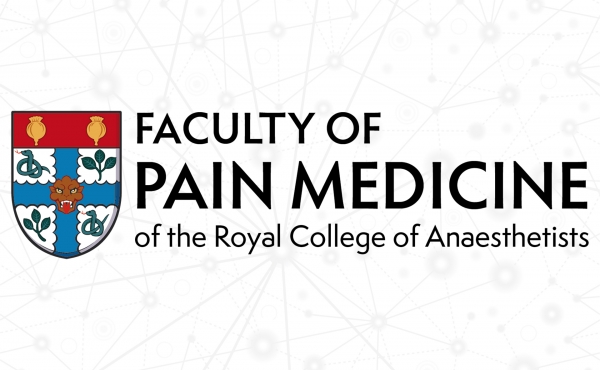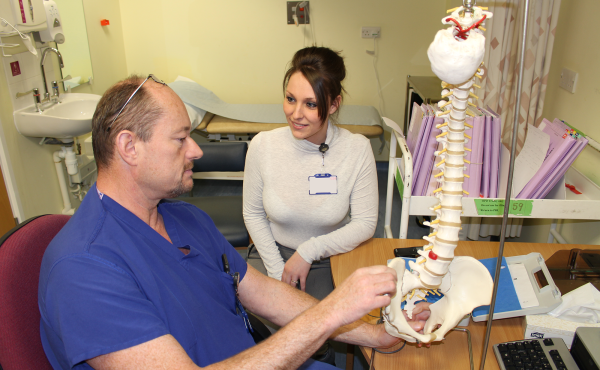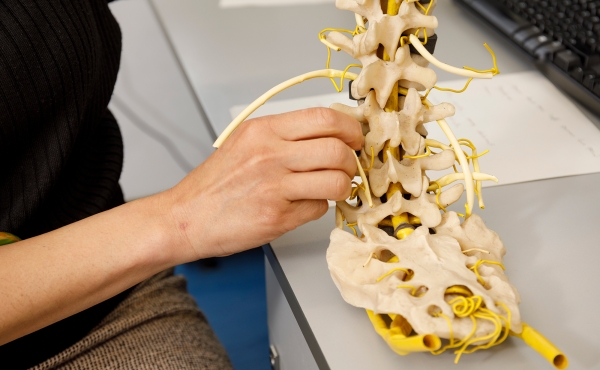Retraining in Pain Medicine
Are you a clinician considering moving into Pain Medicine?
The Faculty clarifies the current position regarding training and retraining for a consultant career post in adult Pain Medicine with or without an anaesthetic component.
There has been some confusion regarding the situation for training, and retraining, for a CAPM (Consultant post in Anaesthesia with a specialist interest in Pain Medicine), whether in a pre-CCT or post-CCT situation. This FPM statement clarifies the current position.
Requirements
Most clinicians working in Pain Medicine usually come from an anaesthetic background and therefore have a CCT or CCST in Anaesthesia. Consultants appointed to such posts whether working full time in Pain Medicine or having a mixed Anaesthetic and Pain Medicine job plan would be expected to have undergone Advanced Pain Training (if pre-2021) or SIA Pain Medicine training (if post-2021). As of 2024, once the Credential for the Pain Medicine Specialist is implemented, we would encourage consultants applying for such posts to apply or hold this Credential.
We do recognise that sometimes doctors wish to change their job plan and embark on a career in Pain Medicine. We wish to point out that a decision by a Trust and or a Clinical Lead to appoint an individual, or change a job plan, without prior recognised training is fraught with potential risks. The principal ones are the ability to work competently within an entirely new field of expertise and being in a position to revalidate and re-licence in that area.
If a consultant were to change their job plan internally without suitable retraining, issues would arise relating to competencies. The employer and employee would be in a very difficult position in the unfortunate event of any concerns being raised relating to practice.
We also respectfully point out that the General Medical Council is very clear in its advice in its Good Medal Practice Guide 2024 that all clinicians should: “Provide a good standard of practice and care, and work within your competence”. Moreover, clinicians who have concerns about any practice that may come about from an inappropriate appointment or practice are obliged to raise concerns about patient safety.
Application and posts
For new Consultants applying for a CAPM, it would be expected that they had completed 12 months of Stage 3 Special Interest Area or an Advanced year of training within a recognised Anaesthesia CCT programme, in a scheme overseen by a RAPM (Regional Advisor in Pain Medicine), or equivalent if outside the UK. For pre-CCT candidates looking to train outside the UK, approval must be sought in advance from the Faculty, through the Out-Of-Programme director. Training, assessments and case exposure, as set out by the Faculty in Pain Medicine, need to be have been successfully completed, and signed off by the RAPM. These are required to complete training and apply for CCT.
There are post-CCT fellowships. These are unregulated, but applicants are advised to confirm that the local RAPM approves the post for applications for the FFPMRCA exam. This may not be the case, especially for highly specialised Fellowships.
To apply for a CAPM, whether as a new appointment or a job change, the requirement would be: Evidence of Advanced training and experience in Pain Medicine, consistent with the CCT curriculum as set out by the Royal College of Anaesthetists and the Faculty of Pain Medicine; successful completion of the faculty's examination in Pain Medicine would be additional evidence of this.
It is currently expected than any internal or external applicant should be able to satisfy these criteria, and a College Assessor would not short-list a candidate without such evidence.
For a Consultant already in an Anaesthesia/Intensive Care post looking to alter their job plan to take on a new Pain Medicine specialist interest, their training and experience should be consistent with the current expectations as set out above.
Training and practice
Training should be at centres already recognised for Pain Medicine training, and it would be unusual for a candidate to achieve a suitable level of competence by purely internal training within their own Trust, except, perhaps, where this is already a recognised training centre.
Potential conflicts of interest relating to the reasons for a decision to take up Pain Medicine must also be considered, and advice from the local RAPM or Faculty should be sought. For training in a recognised unit, such a centre would need to be able to accommodate the individual and this would likely need to be funded, in both time and financially, by the sponsoring employer.
Personal wellbeing
It is also important to consider the potential for additional stress that exists within Pain Medicine. Taking on the long-term management of a large group of patients who often have severe symptoms and variable diagnoses is quite a different experience. From an Anaesthetic/Intensive Care perspective it can often seem a less stressful career path, but, like all areas of medicine it is simply a change in the direction from which the stressful challenges occur.
Want to know more?
Find out about recruitment to Pain Medicine posts.



